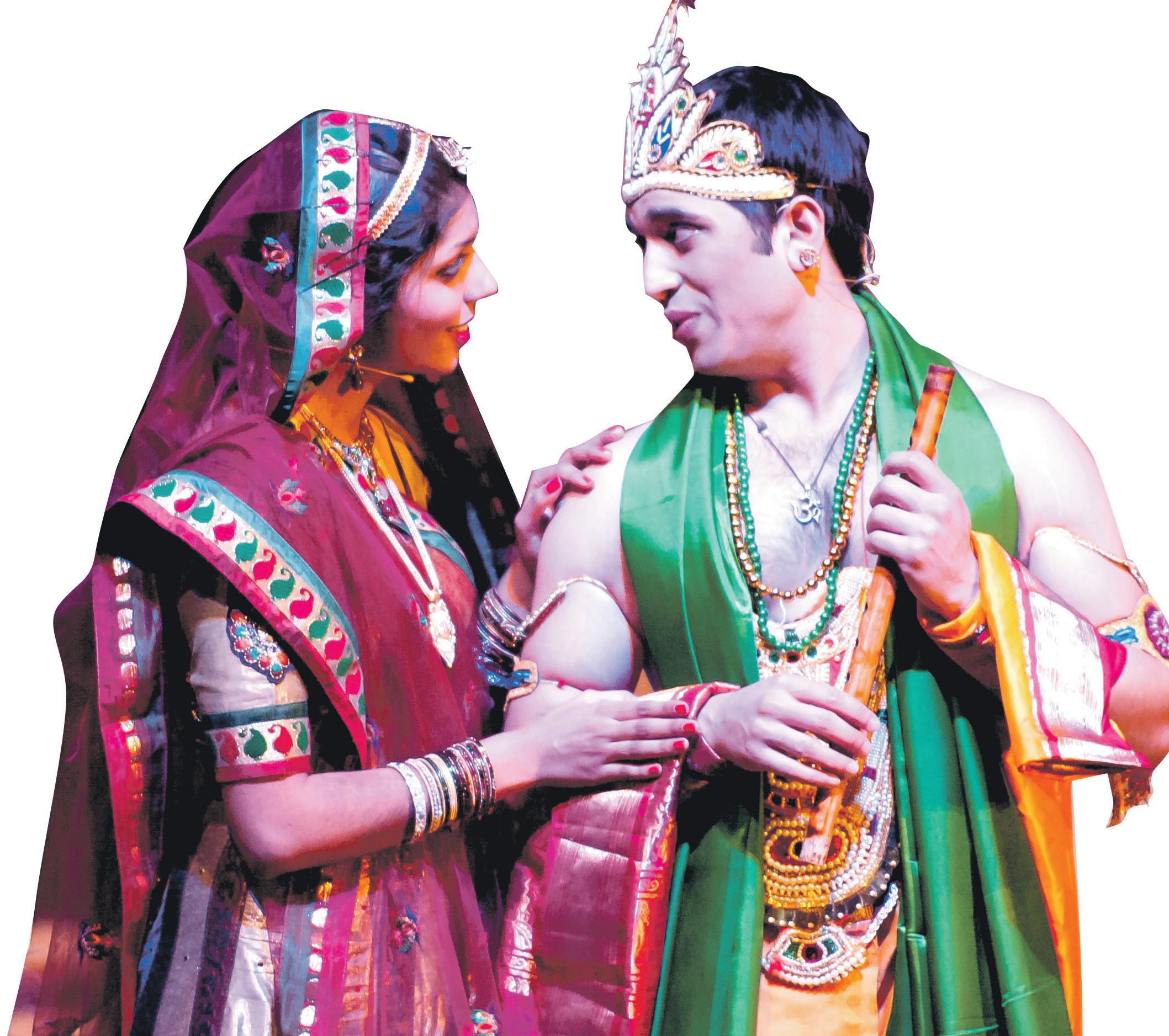
4 minute read
Bhakti that rings true even today
from 2012-08 Sydney (1)
by Indian Link
Meerabai’s story is not only about love and devotion, but equally about trust and determination
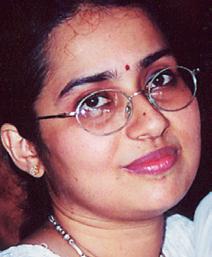
BY USHA RAMANUJAM ARVIND
In the Hindu lexicon, the words Meera and Bhakti are inseparable, as well as synonymous. A fifteenth century Rajput princess, Meerabai epitomizes piety, self-surrender and utmost devotion in its simplest, but purest form. But more importantly, she represents powerful feminine energy in the hitherto male-centric fabric of medieval India. Soft-spoken and diminutive, she was a towering beacon of faith, who singlemindedly stood by her beliefs and her steadfast love for Krishna.
Wrapped up in a cocoon, the naïve young princess is suddenly taken out of her comfort zone and into the real world. It is this exemplary journey of Meerabaifrom a selfishly possessive young girl to a revered Saint of the Bhakti Movement - that Vishwaas Productions’ latest offering Bhakta Meera celebrates.
The marathon dramatisation was staged at UTS’ Greenhalgh Theatre to raise funds for the construction of a Naamadhwaar for well-known community organisation Global Organisation for Divinity (GOD). Since its inception in 2007, the Australian chapter of GOD, which propagates Raama naama chanting and social service, has taken off in a big way.
In the words of their preceptor, Sri Sri Muralidhara Swamiji: “There are countless paths that take us to God, but the journey along the path of bhakthi is certainly the most beautiful and blissful.”
Bhakta Meera is a poignant and sensitive portrayal of a 500-yearold tale that is relevant even today.
Having set a very high benchmark for themselves with previous sellout shows (Gandhi: The Power of One and The Legend of Asoka), Vishwaas Productions (VP) has been pushing creative boundaries with every new project. Since its ‘humble beginnings’ as a university cultural outfit, the group has taken on the mantle of rural education champion, raising funds through thought-provoking and meaningful productions.
Their Sydney audience naturally, have come to expect a lot from Shankar Vasudevan and his extended VP family. And they certainly didn’t disappoint. As the elaborately told story unfolded, the audience was transported from one city to another and one scene to another, without a glitch. The intricate stage props and backdrop only complemented the storyline as a dozen volunteers silently worked behind the scenes for a seamless transition. The ‘eternal gopika’ theme was ushered in at the entrance itself, as each member of the packed auditorium was personally welcomed with a tilak and farewelled with sweets by the actors themselves. Atithi Devo Bhava is a motto by which Vishwaas firmly swears.
The creative team researched their subject matter well and portrayed the milieu with great accuracy. In fact, the sheer scale of the production allowed the director and actors to explore in great depth and detail, not only the protagonist but those caught up in her life and times as well.
Bhakta Meera is a journey of self-discovery as the eternal gopika finds her true identity and purpose in life.
“Meera’s life is an inspiring example of how one should stay strong despite many obstacles and is therefore, so relevant even today,” said Dinesh Ramanan, lead actor and the brains behind the production. “Her story contains a subtle truth, often overlooked. Unmoved by material pursuits, Meera had only one thoughther Krishna. Her struggle and surrounding discord could have been prevented, had she not been smothered by selfish judgements and expectations. Arguments, bullying and racial discrimination stem from our inability to understand another’s perspective. It is this truth that inspired the production and hopefully will resonate with our audience too”.
“We are all mad about something,” director Chiranth Wodeyar explained. “But we fail to understand someone else’s madness.”
Sanity and self-realization is a recurring theme in the drama.
The play opens with a young and innocent Meera clinging to her ‘toy idol’ Krishna. Her love for Krishna is already all consuming.
As she blossoms into a gifted young woman, this obsession becomes ingrained in her psyche. Her grandfather (played by Sabinesh Pottekatt) is helpless.
Lalitha alone understands the complexity and the completeness of this divine relationship. “To you, Meera’s love is madness, but to me it is perfect,” she says in defence of her friend.
It is this apparent “madness” that the play tries to portray. Her blind devotion threatens to destroy her already fragile relationships and her life. But Meera (Kavita Nambiar) remains devout and unmoved, seeking solace in Krishna (Akshay Bhatnagar), and channelising her energy to music.
Her trials and tribulations only strengthen Meera’s character and resolution as she even manages to win over the Mahamantri (Bhibu Aggarwal) and Rana (Dinesh Ramanan) to her cause. Naïve and simplistic as she is, Meera is able to duel the worldly-wise Mahamantri himself into submission.
Alas, her enemies prove too clever for the unworldly Meera. Her husband’s siblings Uda Bai (Vruchi Waje) and Vikram Aditya (Shankar Vasudevan) mindlessly trample over her feelings and sanity in their quest for power. Unwittingly, the Rana himself becomes a victim of the juggernaut, while Meera emerges like a phoenix reborn. Blessed with self-realization (Gnothi seauton), the liberated Meera goes in search of her original mentor Guru Raidas (Nikhil Shivdas) to relinquish the very idol she once desperately clung onto – the source of all her apparent suffering. In doing so, she is truly free to become one with God and share His divinity with the rest of the world.
Scriptwriter Bibhu Aggarwal has no doubt put heart and soul into the blank canvas, painting threedimensional characters who come alive on a contemporary stage.
Clever juxtaposition of comic interludes and witty repartees provided a welcome relief to the heavy philosophical issues that weigh down the plot. Gautam
Bhakta Meera is a journey of self-discovery as the eternal gopika finds her true identity and purpose in life.
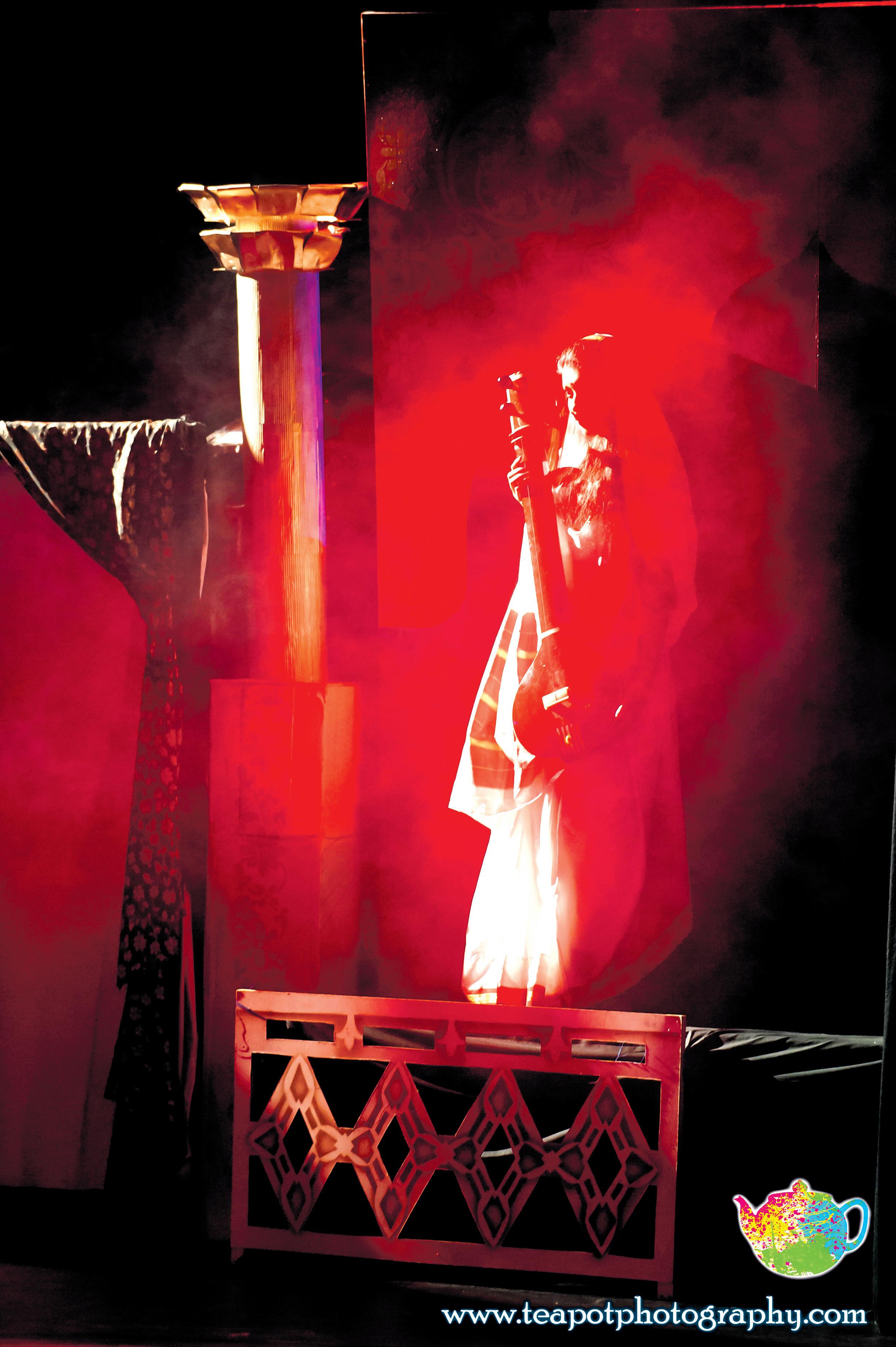
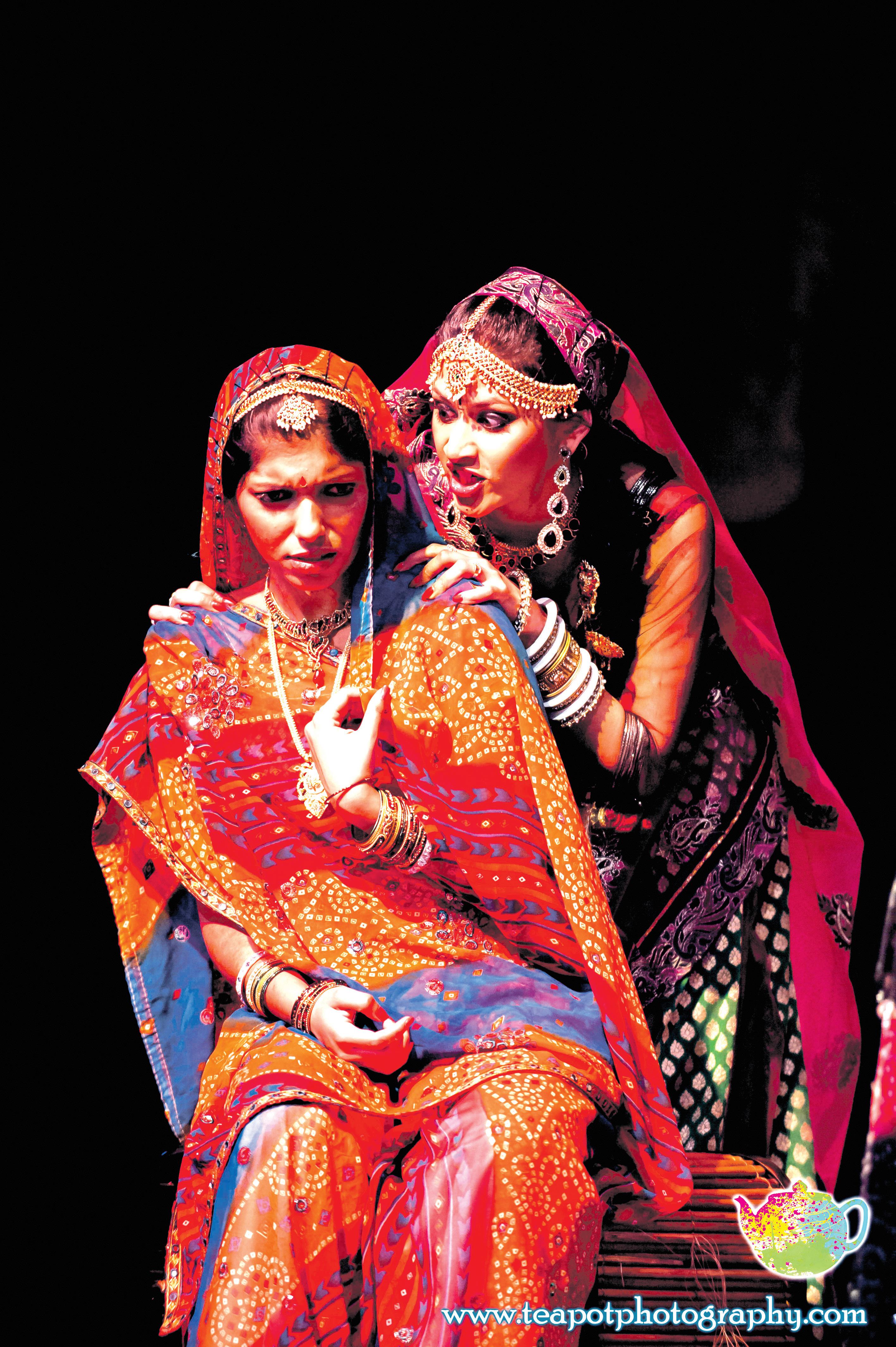
(Neeraj Joshi), Lalitha (Sujatha Natarajan), Tansen (Abhijit Pathak), Akbar (Kanav Malhotra) and the playful Lord Krishna, himself the eternal truant, had the audience, particularly the younger children in splits, even though it was well past their bedtime.
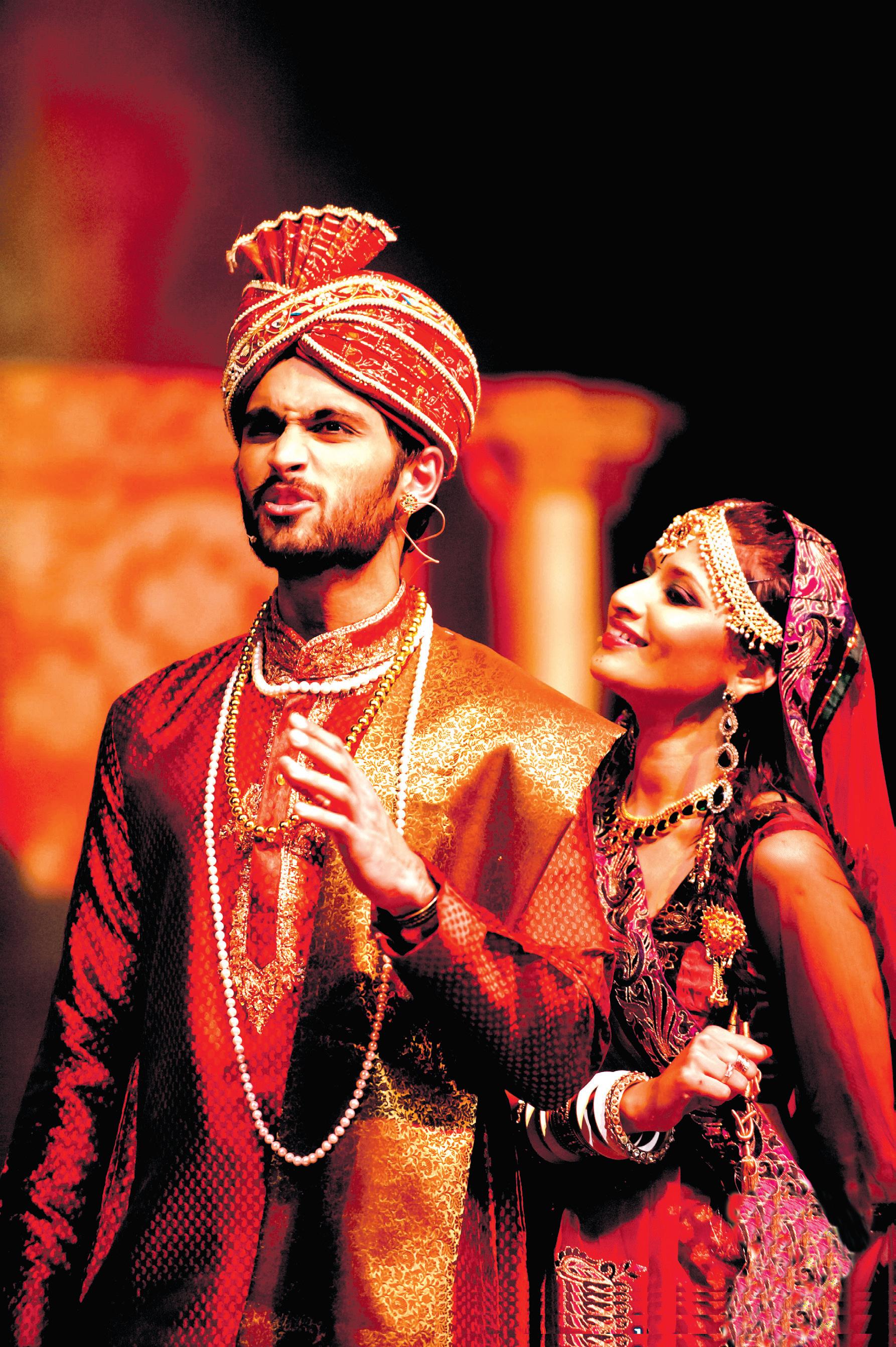
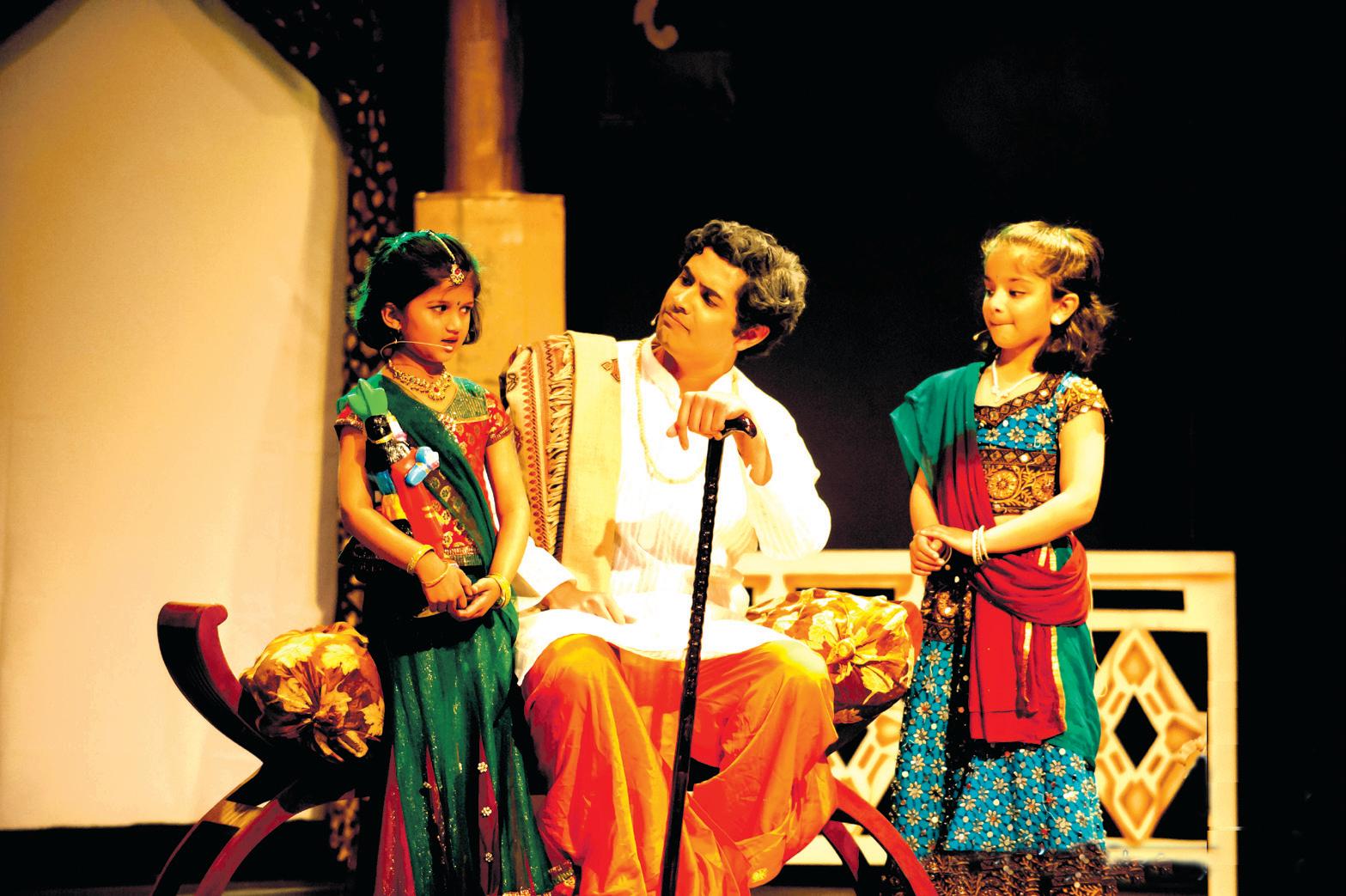
As well, the script provided ample opportunity to boldly explore thorny relationship issues, particularly polygamy and matrimonial harmony.
Equally outstanding was Ashwin Bhaskaran’s live background score. Composing music for any production is no mean task; but composing soundtrack for a legend who is celebrated for her musical genius is a real challenge.
Most of those raised on a diet of MS Subbulakshmi’s renditions of Meera classics would certainly be harder to please. Ashwin and his in-house team deserve praise for some original compositions and renditions.
Speaking to Indian Link after the show, a relieved Ramanan was apologetic about the epic duration. “Unfortunately it was a bit a long but we struggled cutting down scenes because it was hard to develop the different characters effectively without those extra scenes!” he explained.
Another splendid effort, nonetheless, from the Vishwaas team leaves us already awaiting their next production.
Photos:
As well, the script provided ample opportunity to boldly explore thorny relationship issues, particularly polygamy and matrimonial harmony.










